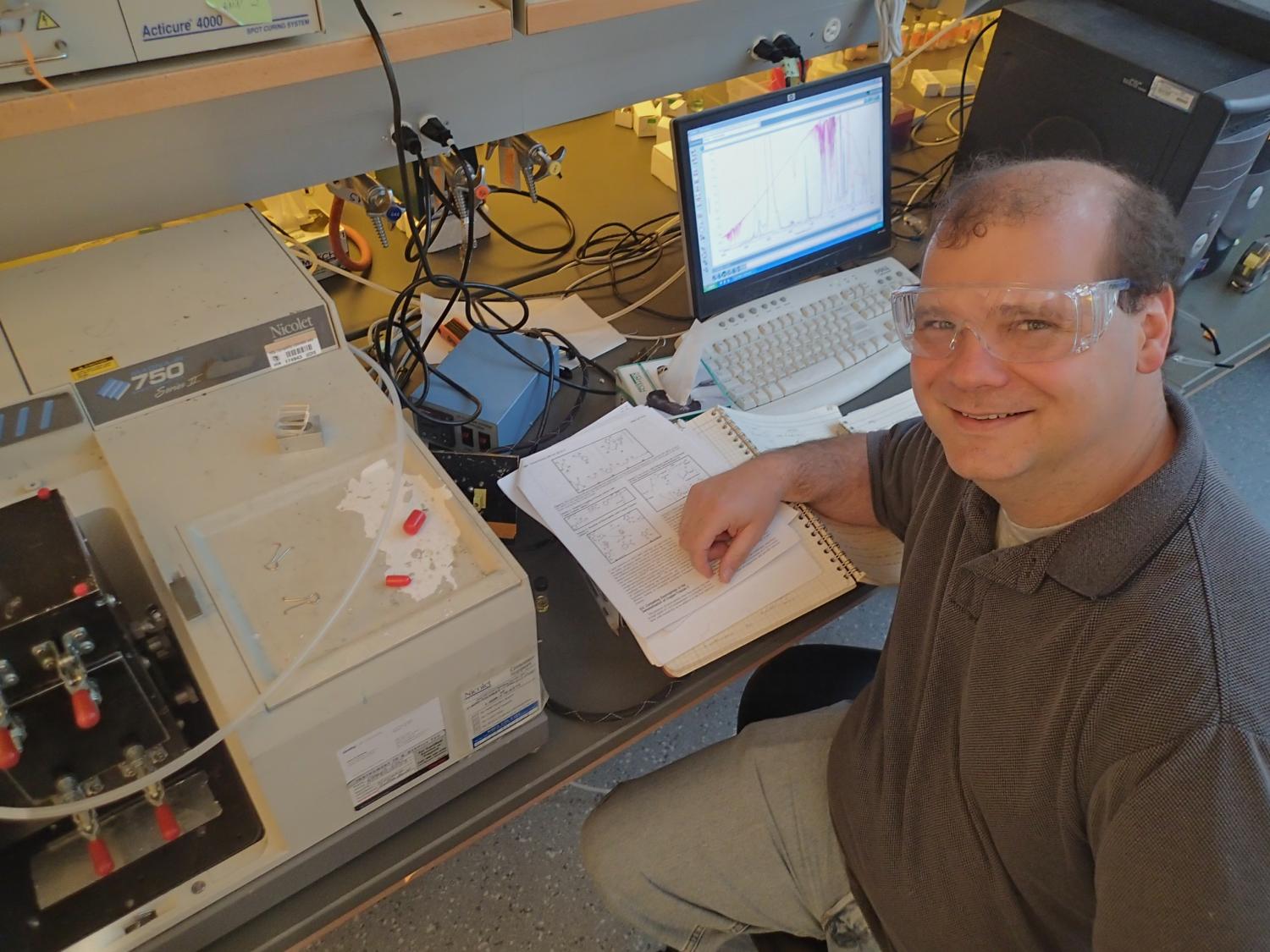Bowman Heads Newly Launched Materials Science and Engineering Program

CU’s newly established PhD degree program in Materials Science and Engineering (MSE) welcomed its first graduate students as well as the first new faculty hire into the program this fall thanks in large part to the efforts of MSE Director and ChBE Distinguished Professor Chris Bowman.
“We are really looking forward to establishing a world class materials program at CU and working with new MSE faculty members and students,” says Bowman. "This program builds on the long-term excellence in materials at CU across the sciences and engineering to establish an interdisciplinary doctoral program. It provides an exciting opportunity for students to collaborate with researchers across those many fields and really approach MSE research in an exciting new paradigm.”
More than 50 current CU faculty, including 10 in ChBE, have MSE-related research and have become faculty affiliates or fellows in the program with several new faculty to be hired in the coming years as well.
The MSE program, which held a kick-off Materials Research Day on May 2, 2013, consists of an interdisciplinary Ph.D. and M.S. program aimed at educating students through both coursework and research. Educational areas encompass materials science and engineering and fundamental areas related to it including physics, chemistry and biology as each of these areas underlie critical elements of materials science and engineering. Students are supervised by one or more science and/or engineering faculty members.
Six unique tracks of study can be pursued: electronic, magnetic and photonics materials; soft materials; structural materials; materials for energy; biomaterials; and computational materials science. Nine science and engineering departments are participating in this interdisciplinary program.
During the May 2 MSE kickoff Materials Research Day event, the 200 attendees, comprising students and faculty in MSE-related areas, perused over 120 student posters highlighting materials research at CU Boulder. A keynote address on “The Role of Materials Research in Science Diplomacy” was given by Alan Hurd of the US Department of State, while a panel discussion on “Translation of Emerging Materials into Societal Advances” was presided over by Eric Amis of United Technologies Research Center, Bill Tumas of the National Renewable energy Laboratory, Suraj Rawal of Lockheed Martin Space Systems, and Mohan
Miscra of ITN Energy Systems, Inc.
In addition to building the MSE program, Bowman has been busy maintaining his own highly prolific research group. Fundamentally, his group is developing novel monomers and photopolymerization mechanisms with an aim of creating and characterizing innovative crosslinked polymeric materials. An image demonstrating the formation of a cross-linked network from one of Bowman’s recent articles graced the April 2013 cover of the journal Advanced Materials. Says Bowman of the honor, “We were excited to showcase one of our photopolymerization reactions and the unique mechanical properties of the resulting networks.”
The applications for these new polymeric materials are extensive. Bowman’s group has created new smart materials that respond with shape and property changes when exposed to a specific stimulus, and they are looking to apply polymerization techniques to produce higher resolution patterning for micro- and nanolithography in semiconductor production. Bowman’s undergraduate and graduate student researchers and his post-doctoral associates are looking into the creation of various ultrasensitive techniques using polymer chemistry which aim to detect diseases before other currently available approaches would. They recently received both an NIH and a tech transfer grant to work on artificial nucleic acids that mimic DNA in several aspects but will be far cheaper to synthesize and use.
Bowman’s group has also utilized novel monomers and crosslinking techniques to create dental restorative materials which polymerize more rapidly and have improved properties such as low-shrinkage induced stress. His work in the dental field, which recently earned him two 5-year NIH grants and was licensed to 3M for use in dental restorations, derives from his position as a Clinical Professor of Restorative Dentistry at CU and his close collaboration with Professor Jeff Stansbury at UCD.
During his twenty years at CU, Professor Bowman has advised over 60 graduate students, 25 post-docs, and 150 undergraduate researchers; he has also won over 25 research and teaching awards, most recently being named a 2012 Distinguished Professor of the University of Colorado by the CU Board of Regents. Bowman’s 17 patents have spawned three start-up companies and he serves as the Co-Director of the NSF I/UCRC Polymerization Center. His 300 papers have been published in such prestigious journals asScienceand several versions ofNature.
In addition to research, Professor Bowman has also been active in the teaching realm, developing or helping develop four new classes while at CU: Biology for Engineers; Polymer Engineering; Polymer Chemistry; and Photopolymerization Reactions. His deep understanding and passionate delivery have earned him numerous teaching awards such as the University of Colorado Academic Life Teaching Award.

